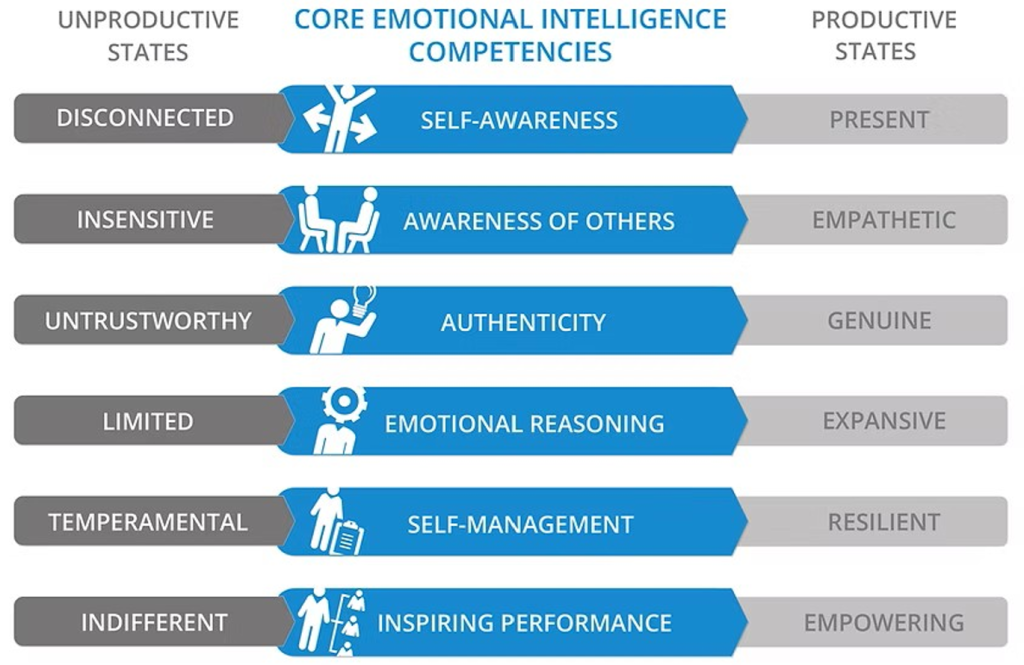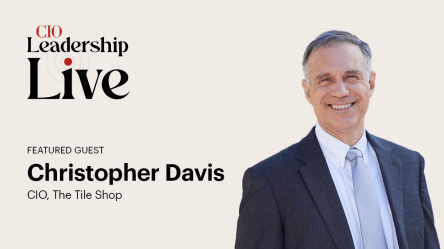How emotional intelligence keeps people in the loop, trust at the center and AI adoption sustainable.

Gartner’s 2025 CIO Agenda emphasizes that leadership and human capabilities such as communication, resilience and cultural alignment are decisive differentiators alongside technical execution. AI is accelerating change, but success depends on people as much as on models or tooling.
Global research confirms the gap. Watermark Search International’s 2025 survey shows 90% of interim leaders are already using AI tools, yet only 3% report extensive organizational adoption. McKinsey’s 2025 report, AI in the Workplace, echoes this: Almost all companies invest in AI, but just 1% believe they are at maturity. Deloitte’s 2025 Global Human Capital Trends reports that two-thirds of managers and executives say recent hires are not fully prepared, with “experience” the most common shortfall — underscoring the need to prioritize enduring human capabilities like curiosity and emotional intelligence.
And the World Economic Forum projects that by 2030, nearly 40% of core job skills will have changed, with leadership, social influence, empathy and active listening among the most critical.
The message is simple. AI may transform business, but leadership remains a human act.
Six EI practices every CIO needs in the AI era
The Genos Emotional Intelligence model, which I use in my coaching work, identifies six core competencies that leaders can develop. Each is directly relevant to the challenges CIOs face today.

Nathalie Heynderickx
1. Self-awareness
More than noticing emotions, it means examining assumptions before reacting. Harvard’s Chris Argyris described this as climbing down the ladder of inference. CIOs who practice this avoid blind spots and make clearer decisions in the fog of digital change.
Try this: Before reacting, pause and ask yourself: “What assumptions am I making right now and are they facts or interpretations?”
2. Awareness of others
Empathy is not a soft skill. It is the ability to listen deeply, validate diverse voices and sense undercurrents in hybrid or global teams. Innovation only thrives where people feel safe to contribute. Yet empathy is not natural to everyone.
Try this: Practice zipping your lips and listening without offering solutions. Pay attention to nonverbal cues such as tone of voice and body language, and reflect back what you hear before responding.
3. Authenticity
Authenticity in leadership is not about blunt honesty or polite avoidance. It is about constructive courage and being open, assertive and trustworthy. CIOs who show authenticity foster trust in AI programs that otherwise might trigger fear. Too often, leaders slip into creating artificial harmony and avoiding tough conversations, especially with peers.
Try this: Before a difficult conversation, ask yourself: “Am I being honest and respectful, or am I just keeping the peace?”
4. Emotional reasoning
Emotions are data. They reveal what matters most to people: whether they will commit, resist or disengage. Ignoring them risks decisions that look sound on paper but fail in practice. CIOs who integrate emotional reasoning secure buy-in, accelerate adoption and ensure alignment.
Try this: In your next decision-making meeting, pause to ask: “What emotions are in the room and what do they tell me about people’s commitment to this decision?”
5. Self-management
CIOs face relentless pressure. The difference is not who feels stress, but who has strategies to reset and recharge. Rituals of self-care, such as exercise, journaling, mindfulness or micropauses to reframe, help leaders show up at their best.
Try this: Build one reset ritual into your day, even if it is just a two-minute breathing pause between back-to-back meetings.
6. Inspiring performance
This is the ultimate multiplier. It creates environments where people feel recognized, supported and motivated. For CIOs, this is how you retain talent, inspire loyalty and unlock discretionary effort, the extra energy people give when they feel valued.
Try this: Each week, make a point of recognizing one person not just for what they delivered, but for how they did it: the collaboration, creativity or resilience they showed.
Beyond Genos: the Roche Martin lens
Where Genos highlights practices, Roche Martin emphasizes capacities. Their Emotional Capital Report identifies 10 capabilities that underpin effective leadership, including optimism, adaptability, empathy and self-confidence.
In a leadership program I facilitated, one executive admitted that their natural pessimism had made their team fearful of AI change. Through ECR feedback, they learned to project optimism, reframing AI as an opportunity to innovate rather than a threat. The shift in tone created the psychological safety the team needed to experiment.
Where the models converge
When you lay the two models side by side, the convergence is striking.
- Self-awareness (Genos) aligns with self-knowing (Roche Martin)
- Authenticity (Genos) aligns with straightforwardness (Roche Martin)
- Self-management (Genos) aligns with self-control (Roche Martin)
- Inspiring performance (Genos) aligns with optimism and relationship skills (Roche Martin)
Both agree. Emotional intelligence is not abstract. It is measurable, learnable and decisive for leadership in the AI era.
AI as an amplifier, not a replacement
Executive surveys show AI is already entering decision flows. A 2025 SAP study found 55% of executives say AI insights routinely replace or bypass traditional decision-making in their firms. IBM’s 2025 CEO Study reports 61% of CEOs are actively adopting AI agents and preparing to scale them.
This creates both risk and opportunity. The risk is that leaders rush into AI adoption without the skills to bring their people with them. The opportunity is for those who integrate discernment, judgment and empathy into how AI is deployed.
In my Mindful AI Podcast conversation with Rasmus Hougaard, he described AI as “an exoskeleton for the mind and the heart,” a tool that can amplify human strengths when guided by wisdom and values. But only if leaders supply conscience and clarity.
I have seen this firsthand. In one global tech team I worked with, the obstacle was not the platform itself but unspoken resentment across time zones. EI tools gave people a way to listen differently, surface tensions and reset dynamics. Productivity followed trust.
As AI becomes more powerful, leaders must also ensure that critical decisions remain human. Distinguished professor of computer science Stuart Russell of the University of California, Berkeley, has argued for beneficial machines: AI designed to defer to human judgment, seek permission and act cautiously when guidance is unclear. Emotional intelligence is what enables CIOs to hold that line, to stay grounded, question assumptions and keep people, not algorithms, in the driver’s seat.
Keeping humans in the loop
There is also an ethical imperative. As I argued in the Mindful AI Manifesto, which I published on LinkedIn in 2020, programming is never value-neutral. Code reflects the consciousness of the developer, just as art reflects the mindset of the artist. Without emotional intelligence, unconscious bias slips into algorithms, scaling inequities.
This is why diversity initiatives like Joy Buolamwini’s Algorithmic Justice League and Kriti Sharma’s AI for Good matter, and why CIOs must take responsibility for embedding empathy and awareness into their teams. Emotional intelligence gives leaders the discernment to ask, “Are we building systems that enhance human dignity, or erode it?”
From soft skill to strategic advantage: A call to CIOs
When CIOs bring EI to the forefront, they do more than lead change. They shape cultures where trust fuels innovation, where inclusion drives adoption and where technology serves people, not the other way around.
The evidence is overwhelming. Studies from Gartner to SAP point to the same conclusion: Emotional intelligence is not a soft skill. It is a hard differentiator of organizational success in the age of AI.
The future belongs to leaders who can pair intelligence with humanity. AI will transform operations, but it is emotional intelligence that will sustain trust, inclusion and resilience.
For CIOs, the question is no longer if EI matters, but how you will cultivate it in yourself, your teams and your organizations. As Hougaard reminds us, our competitive advantage is not speed or processing power. It is the spaciousness of our minds and the warmth of our hearts.
That is the essence of leading with emotional intelligence in the age of AI.
This article is published as part of the Foundry Expert Contributor Network.
Want to join?










